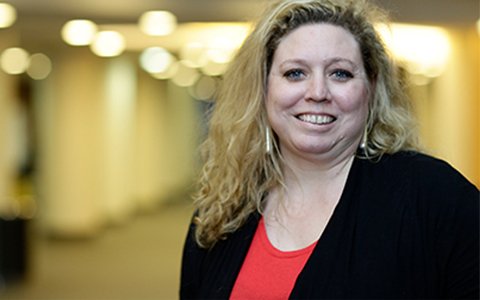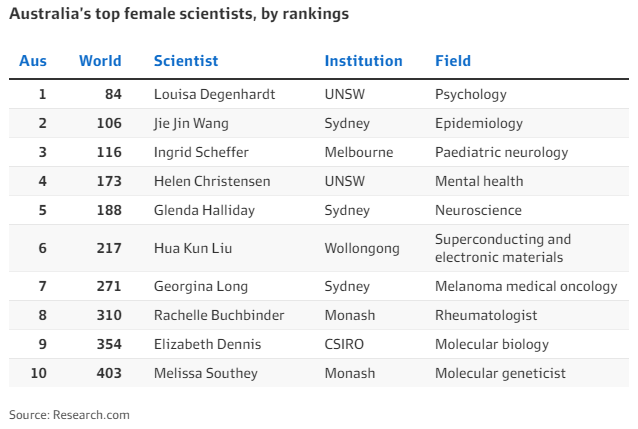Congratulations Professor Degenhardt
Thirty-six Australians on list of world’s best female scientists
 The inaugural ranking of the world’s best female scientists has only one Australian researcher in the top 100.
The inaugural ranking of the world’s best female scientists has only one Australian researcher in the top 100.
Louisa Degenhardt, a psychologist from the University of NSW’s Drug and Alcohol Research Centre, was deemed to be 84th on a list of the world’s 1000 top female scientists.
Thirty-six Australian scientists made it onto the list.
Analysts looked at data on 167,000 scientists and ranked them based on their number of publications and citations, and the impact they have had on other researchers – or what is known as the H-Index. The ranking also took into consideration awards and professional achievements.
Imed Bouchrika, the chief data scientist for Research.com which created the ranking, said sexism and gender inequality were rife in the science world and women made up only about one-third of the research workforce.
“It is important to promote the role of women in science more and to bring attention to the gender bias and misrepresentation problems that still trouble the research community,” Dr Bouchrika said.
Dr Bouchrika also pointed to what is known as the Matilda effect which identifies the lack of recognition for female scientists. The term was coined in 1870 by suffragette Matilda Gage, but is still just as relevant today.
A psychologist by training, Professor Degenhardt conducts global epidemiological research on people who use illicit drugs, such as opioids and methamphetamine.
“I look at the evidence for what we know about the extent of drug use and drug-related harms around the world, and the interventions used to reduce those harms,” Professor Degenhardt said.
Over 15 years, she has played a lead role in developing research on illicit drug dependence in the Global Burden of Disease study that assesses mortality and disability from major diseases, injuries, and risk factors involving 3600 researchers from 145 countries.
“We do a lot of work that’s intentionally valid and very applied. It’s intended to be relevant to policymakers and to a range of audiences. And that means the work is highly cited,” Professor Degenhardt said.
At the top of the list is JoAnn E. Manson of Harvard Medical School who is respected internationally for her work on internal medicine, epidemiology and women’s health.
Harvard was the leading institution, which employs 40 of the 1000 women scientists. The US dominated the list with 623 scholars.

The best female scientists are predominantly publishing in the field of medicine, with 46.8 per cent of ranked scholars, followed by physics (10.4 per cent), genetics and molecular biology (8.7 per cent), and biology and biochemistry (8.2 per cent).
On Thursday, a website was launched to raise the profile of women scientists. Called STEM Women Global Network, the website allows members to find collaborators and connections.